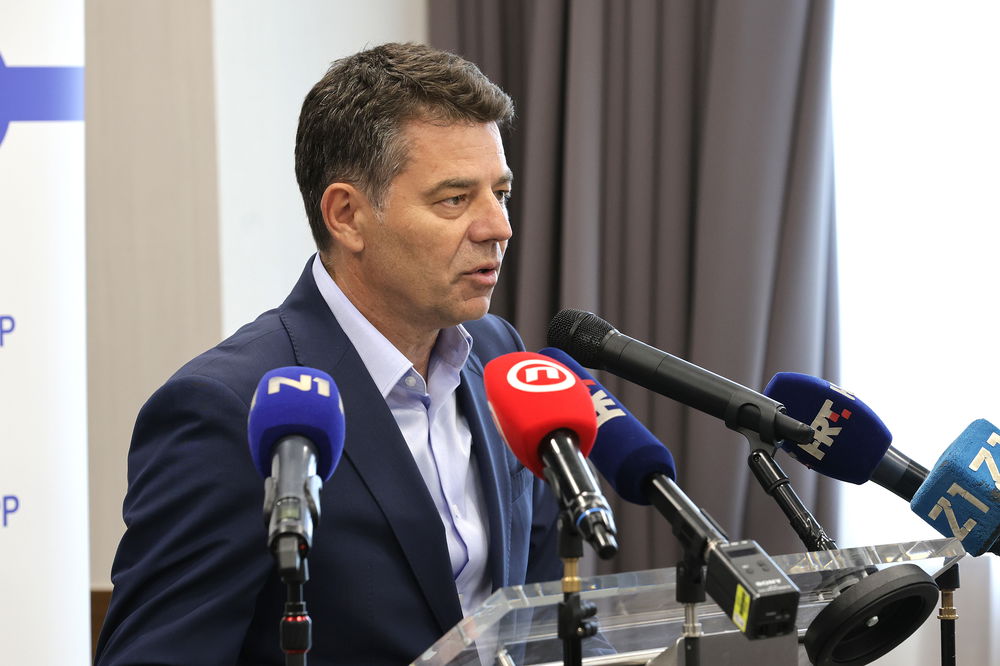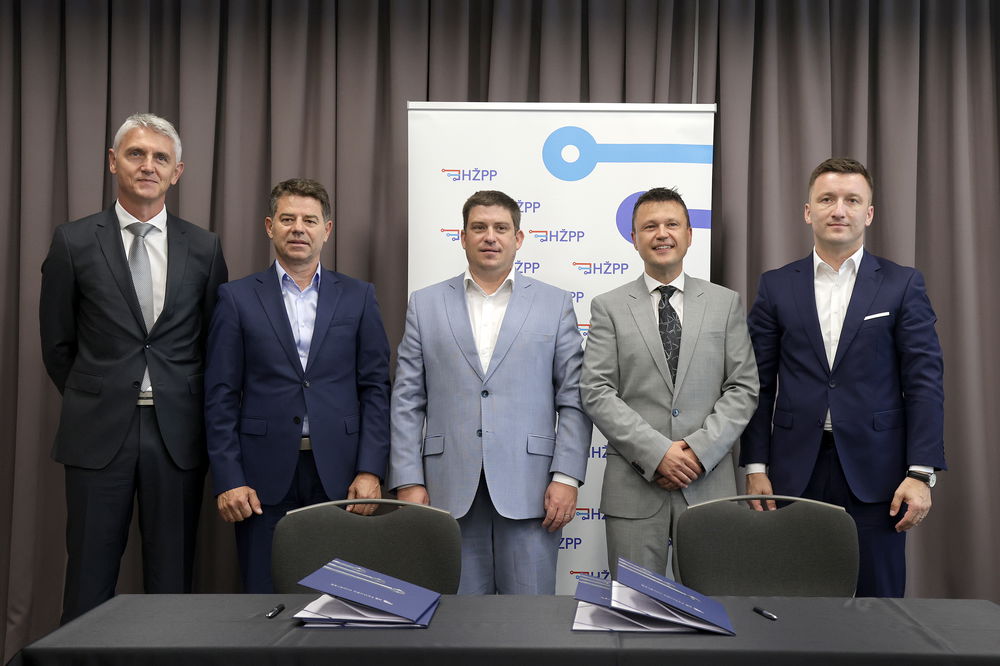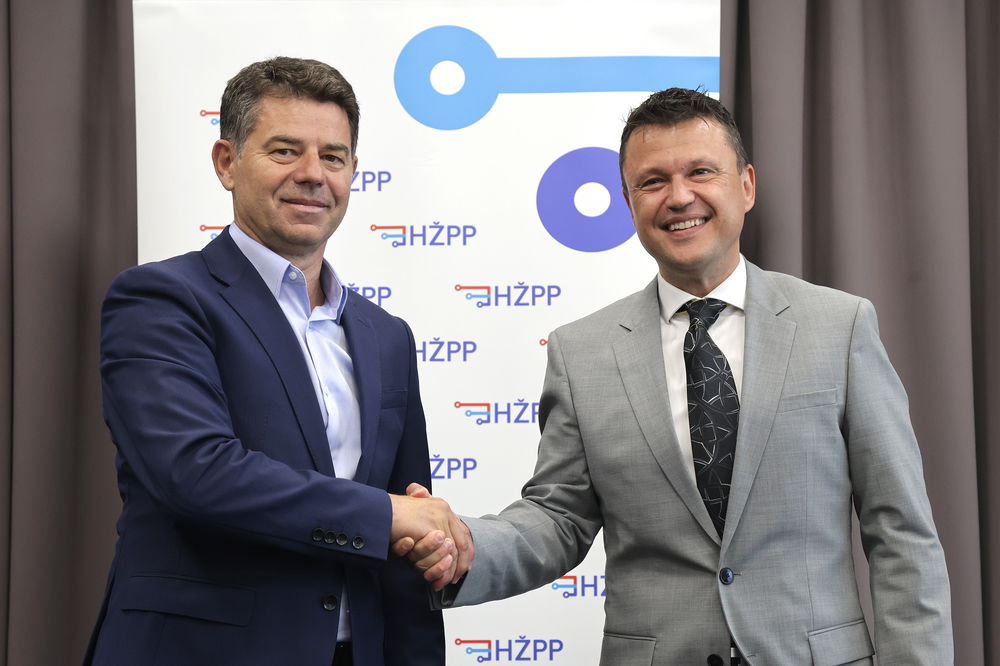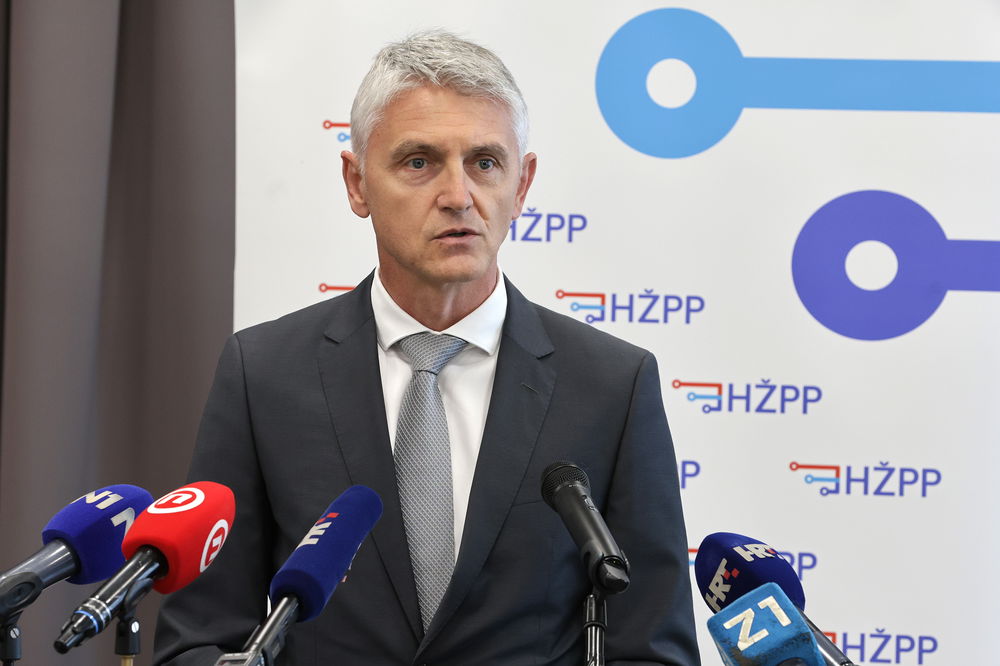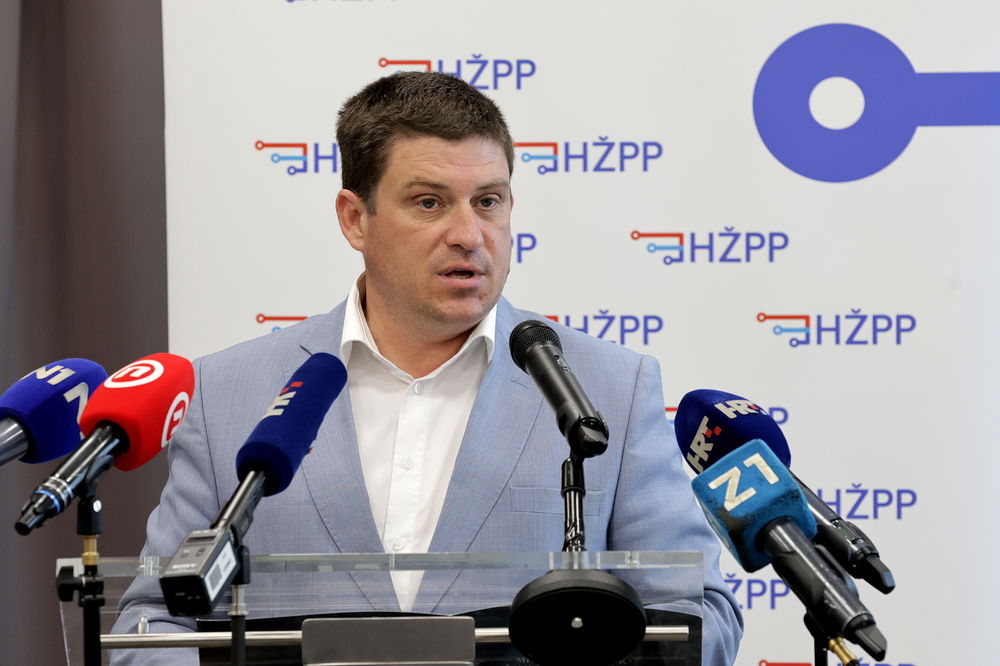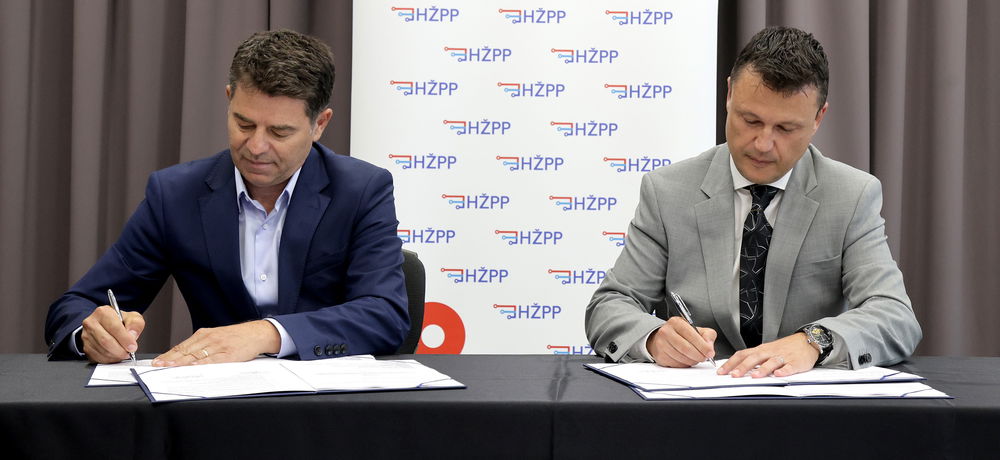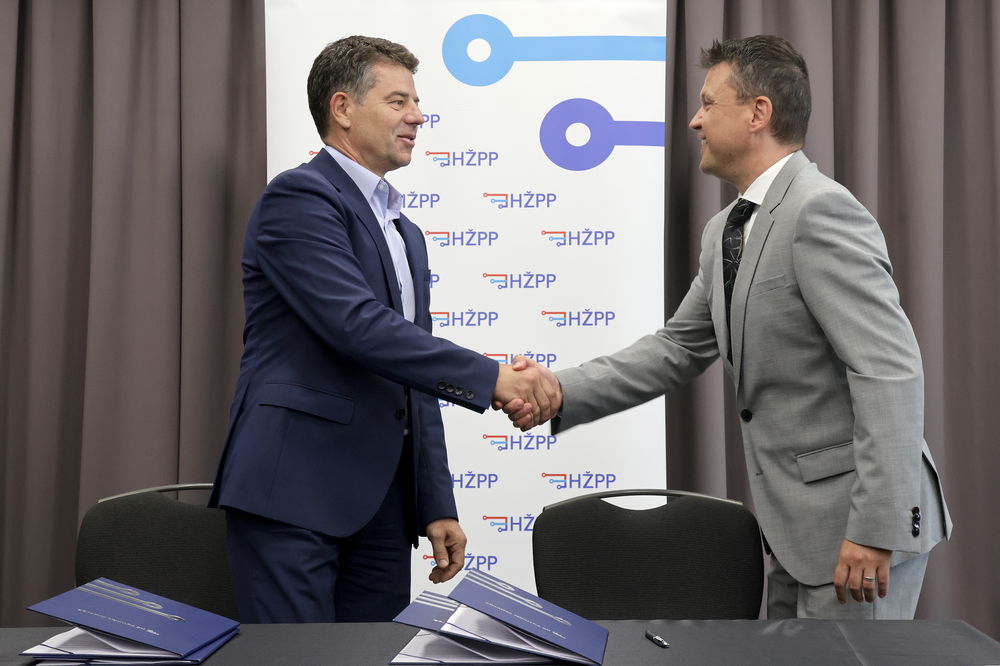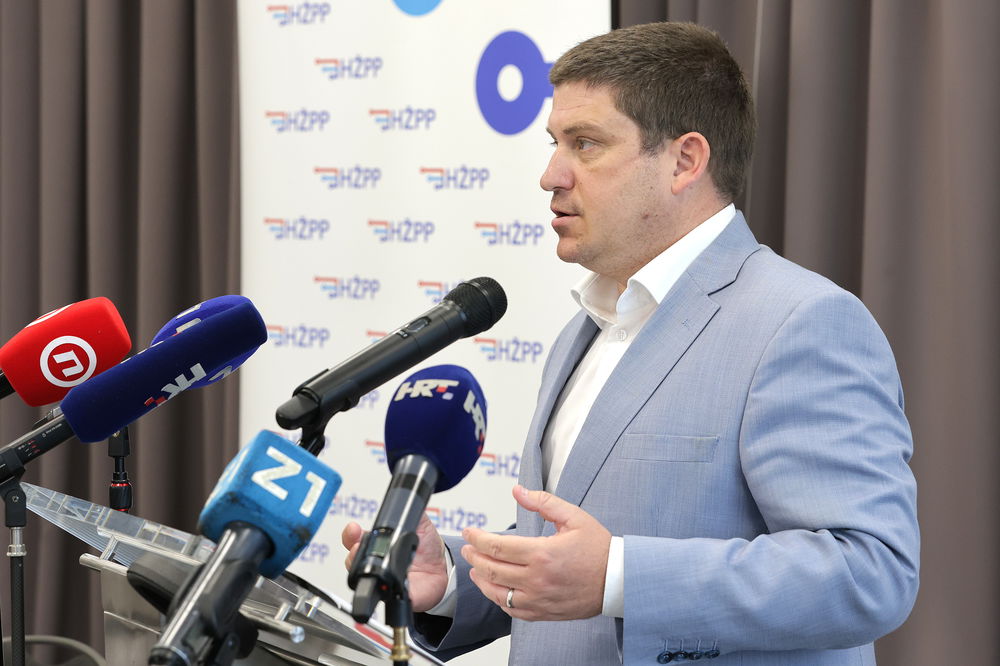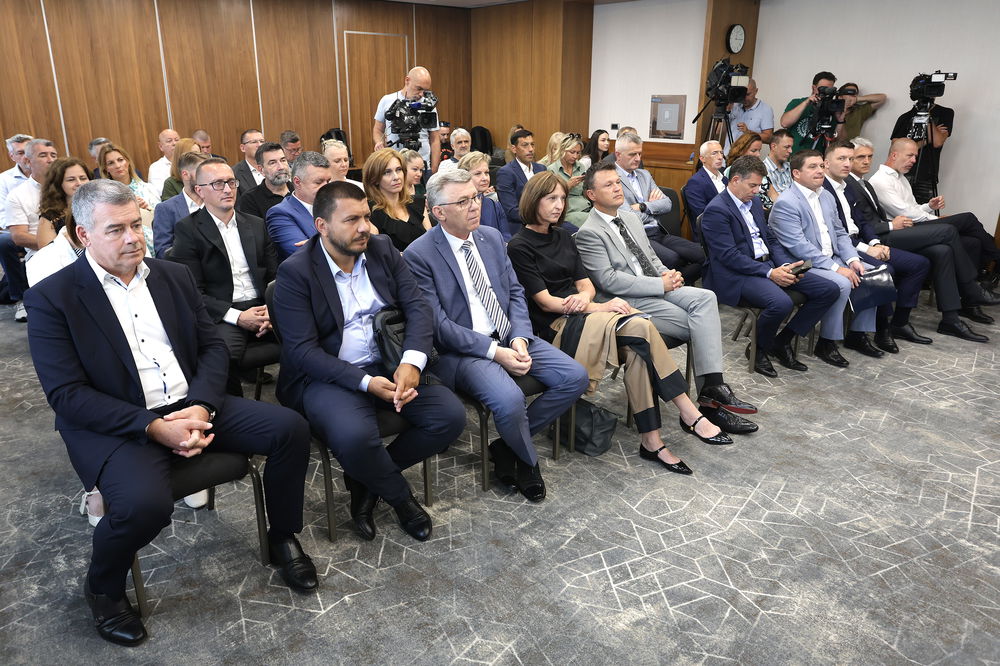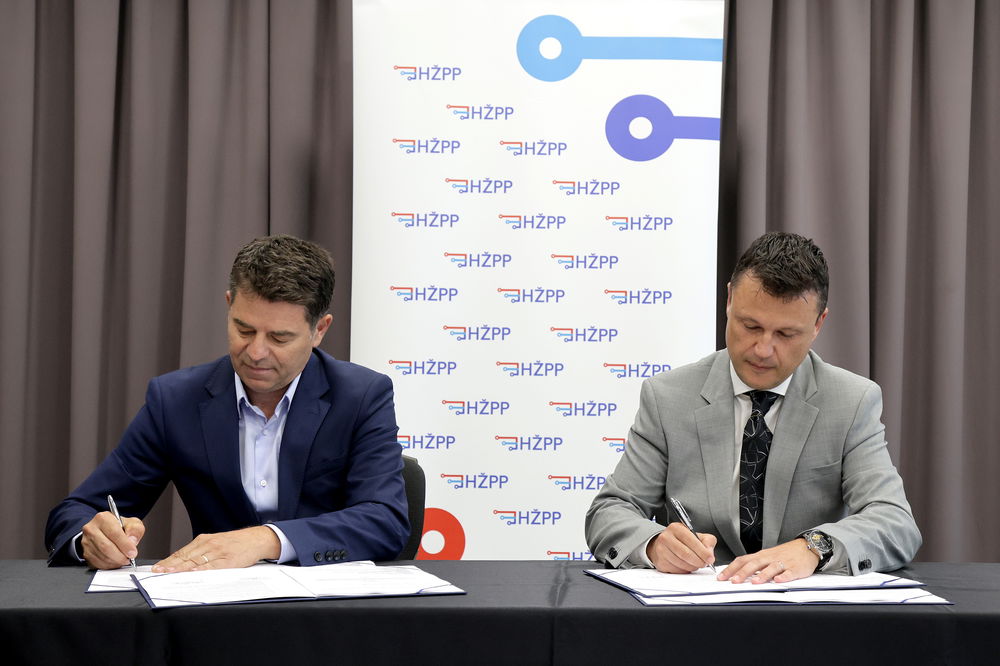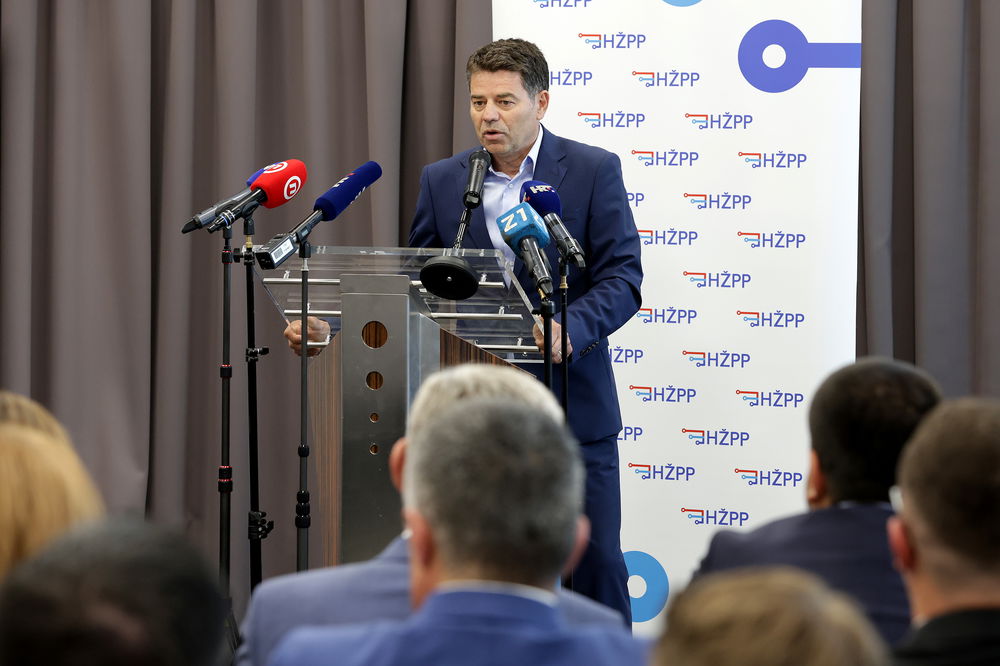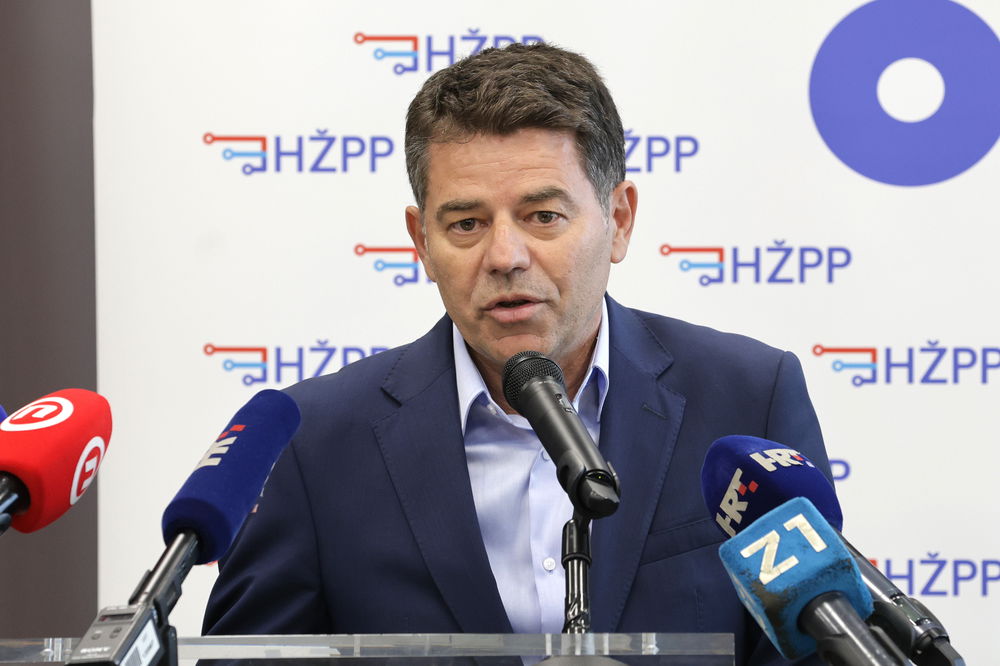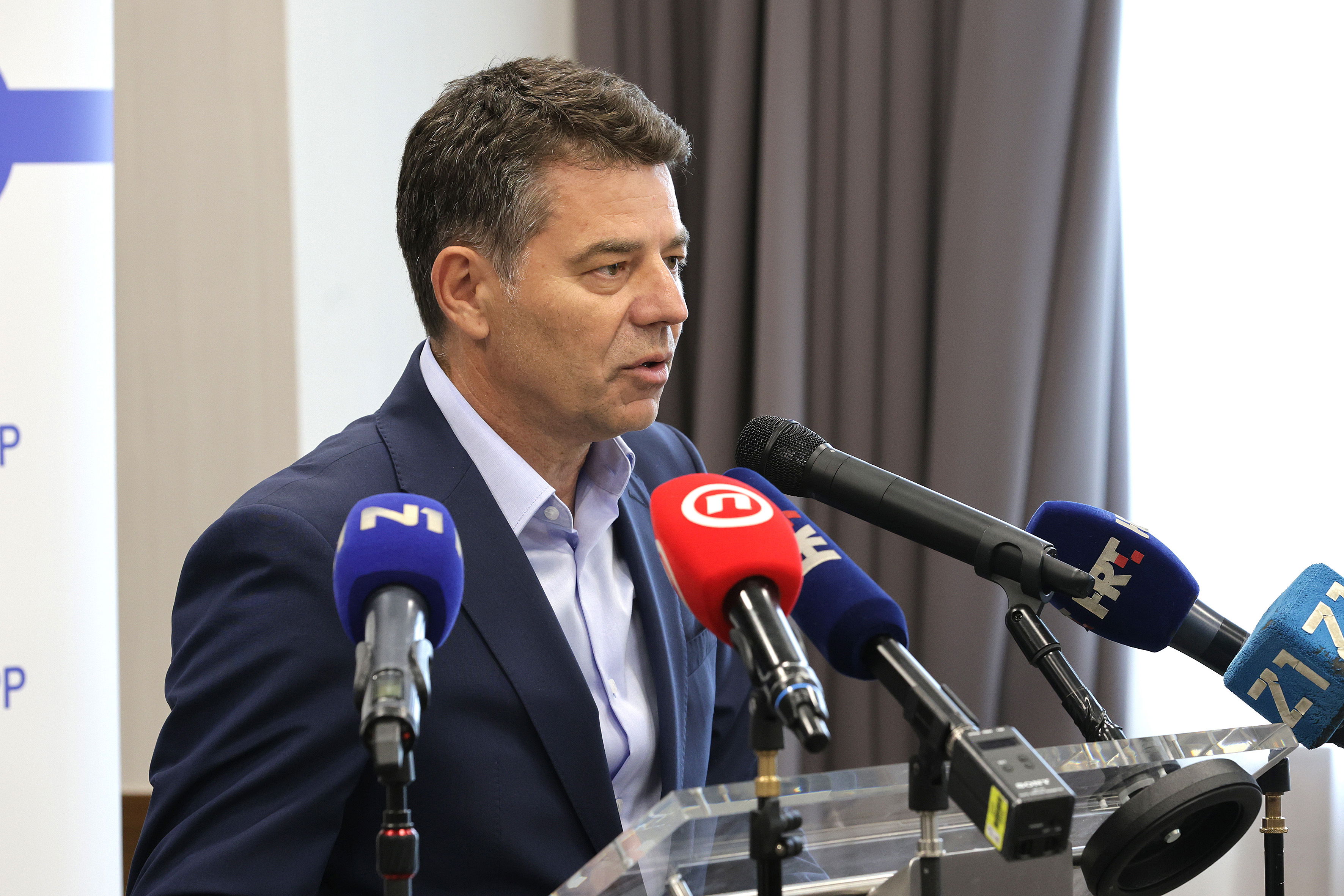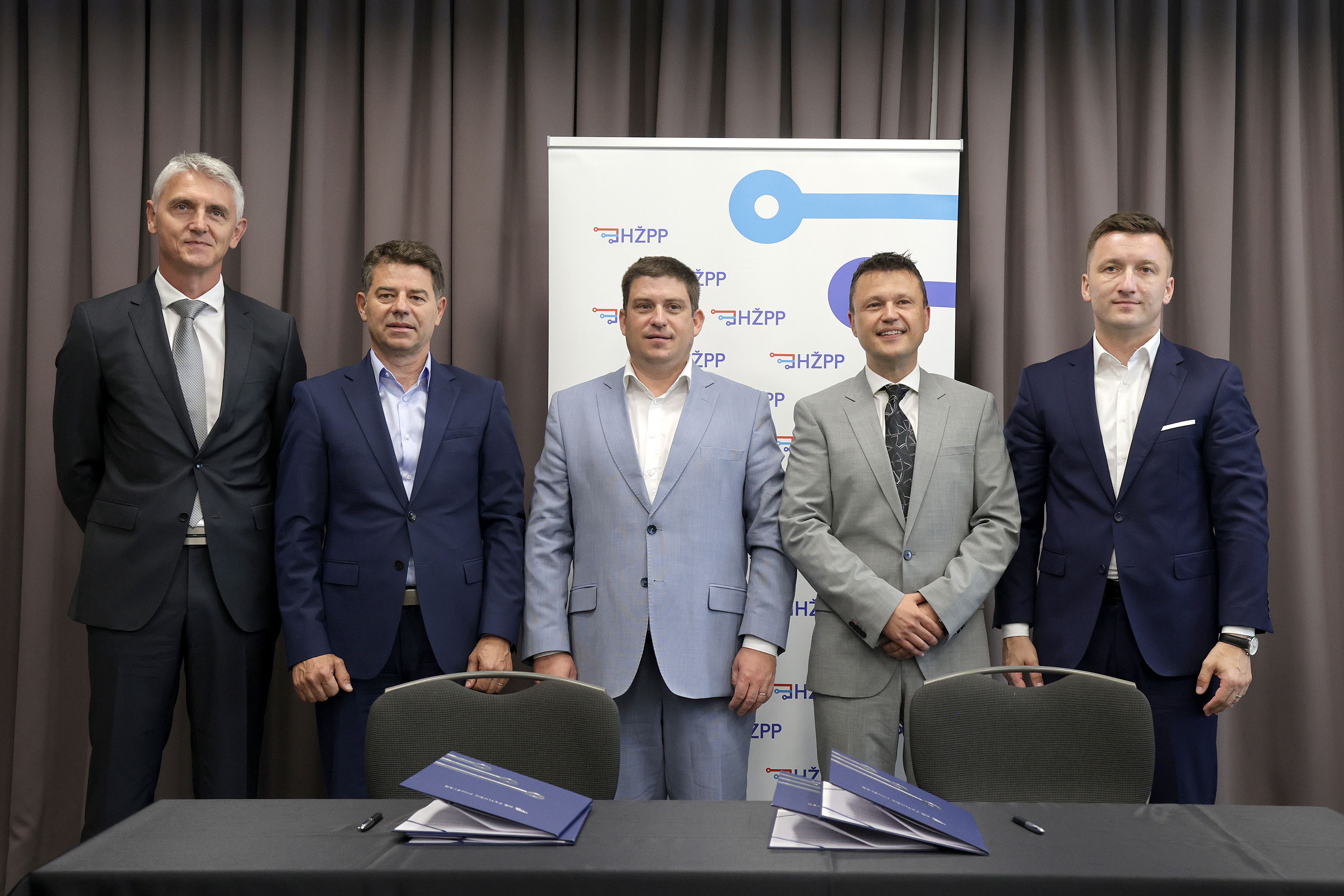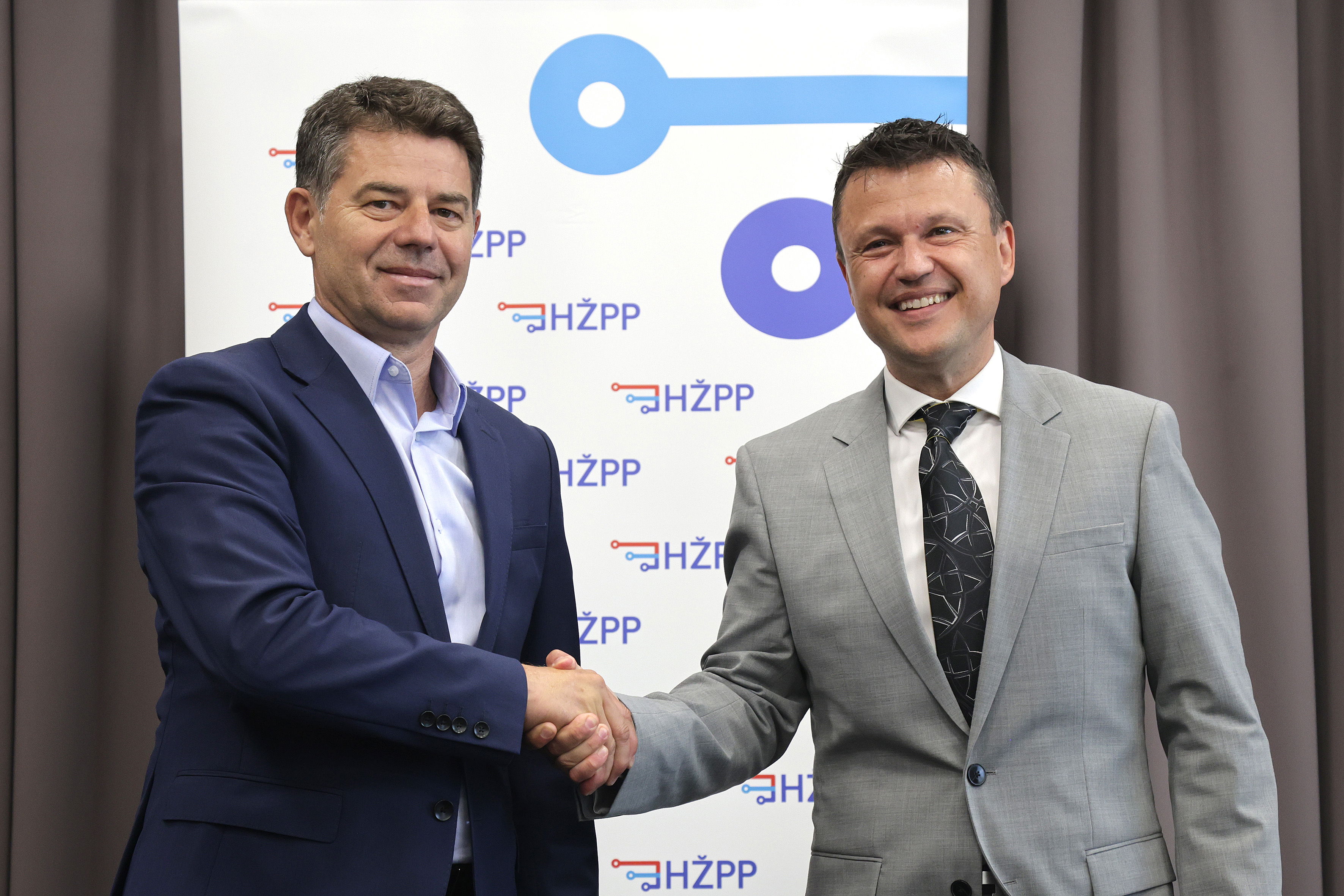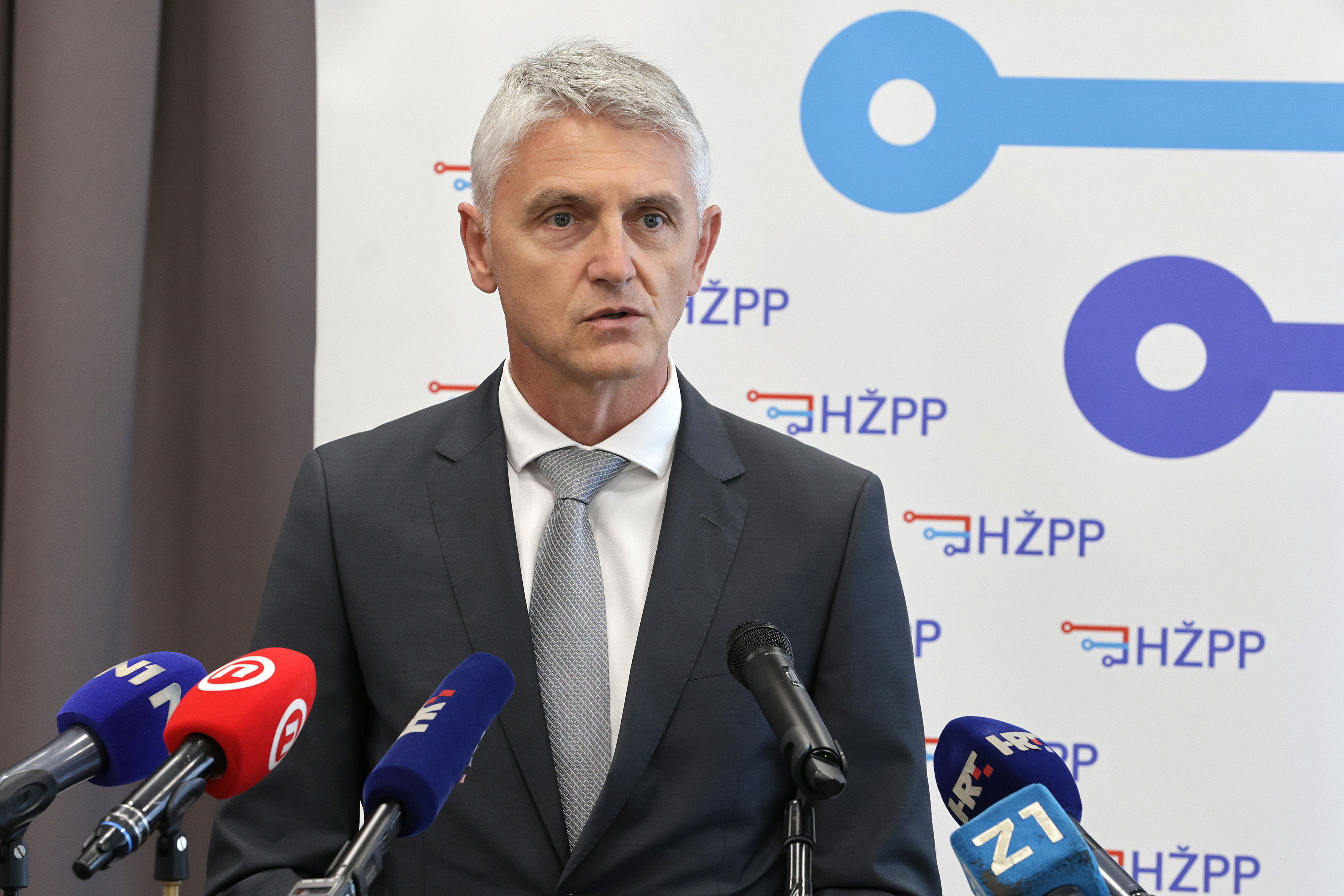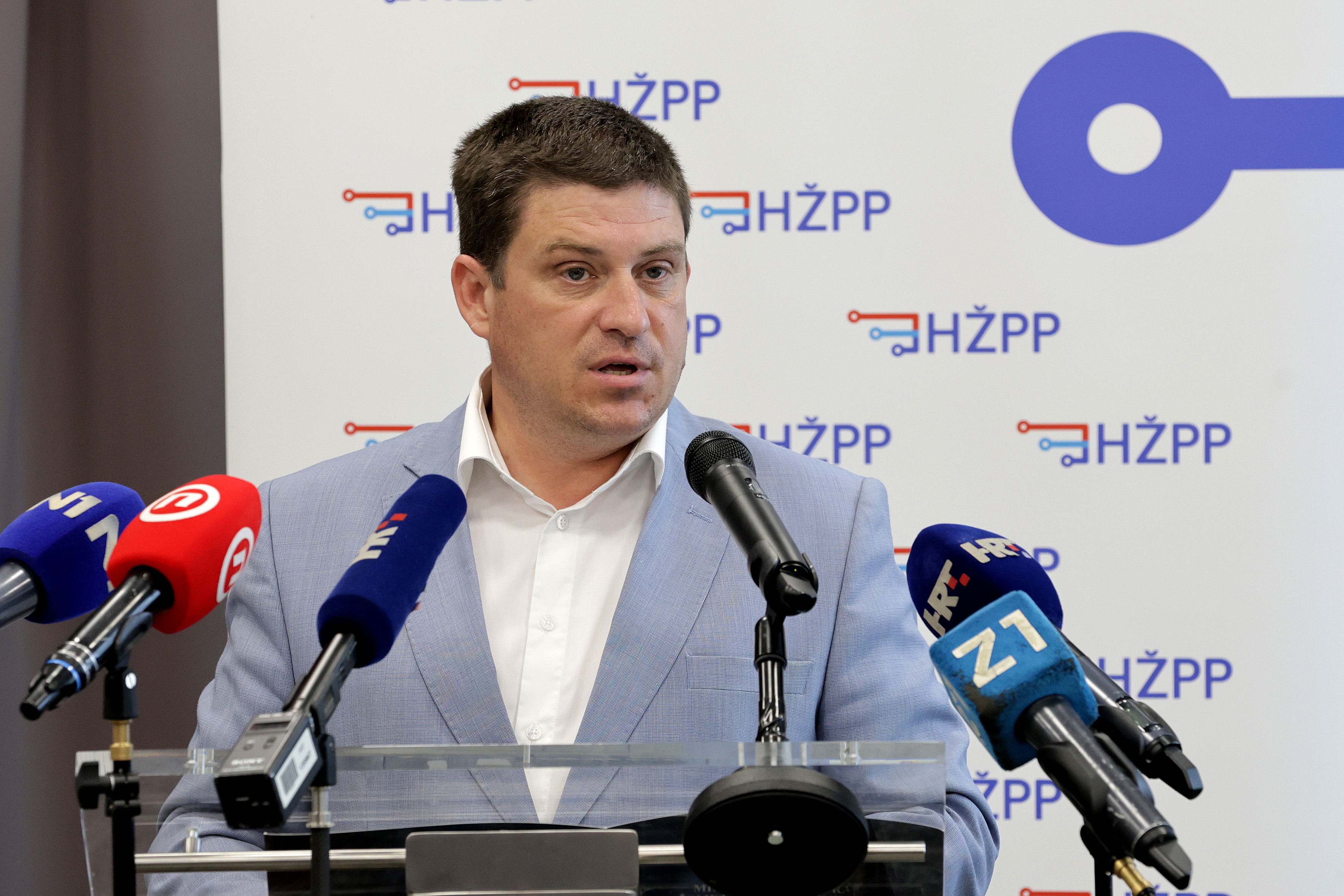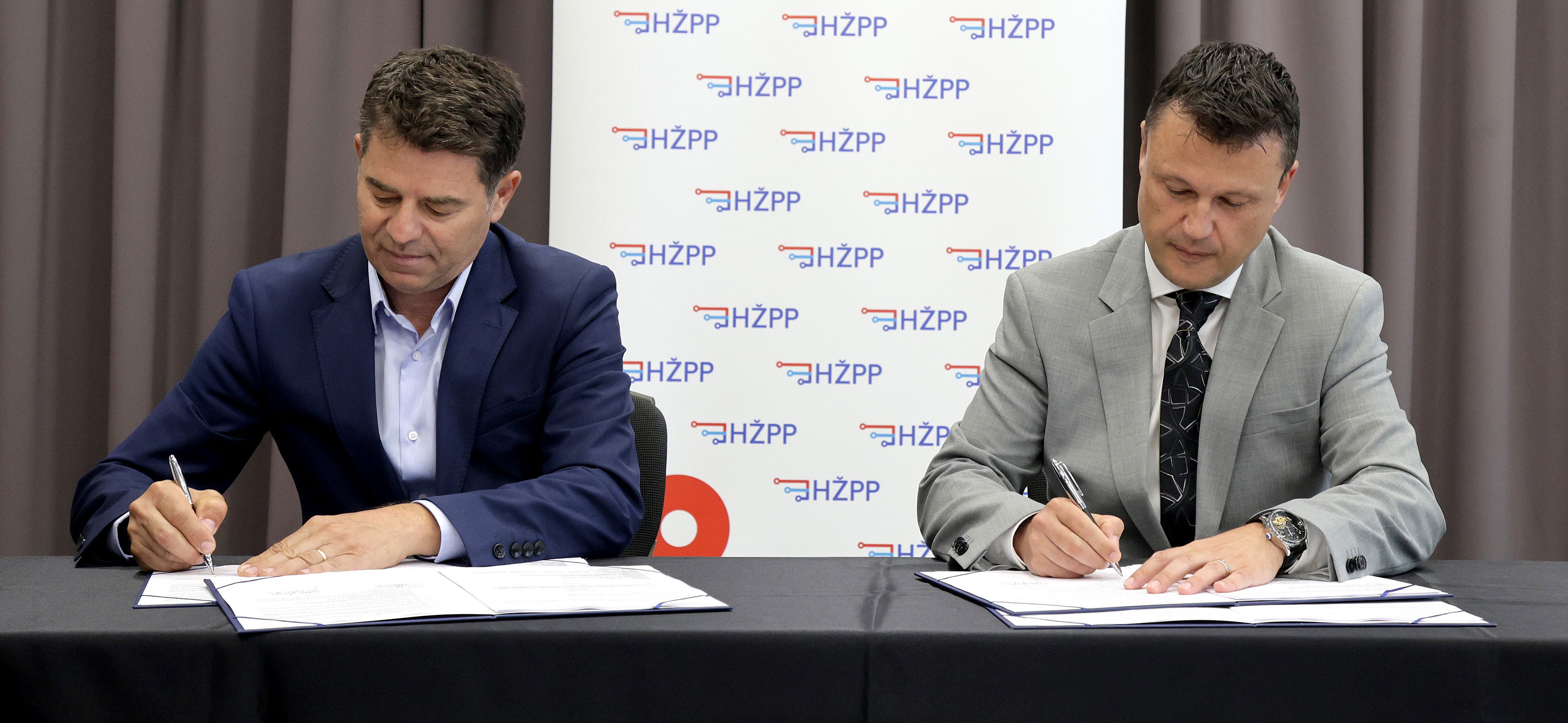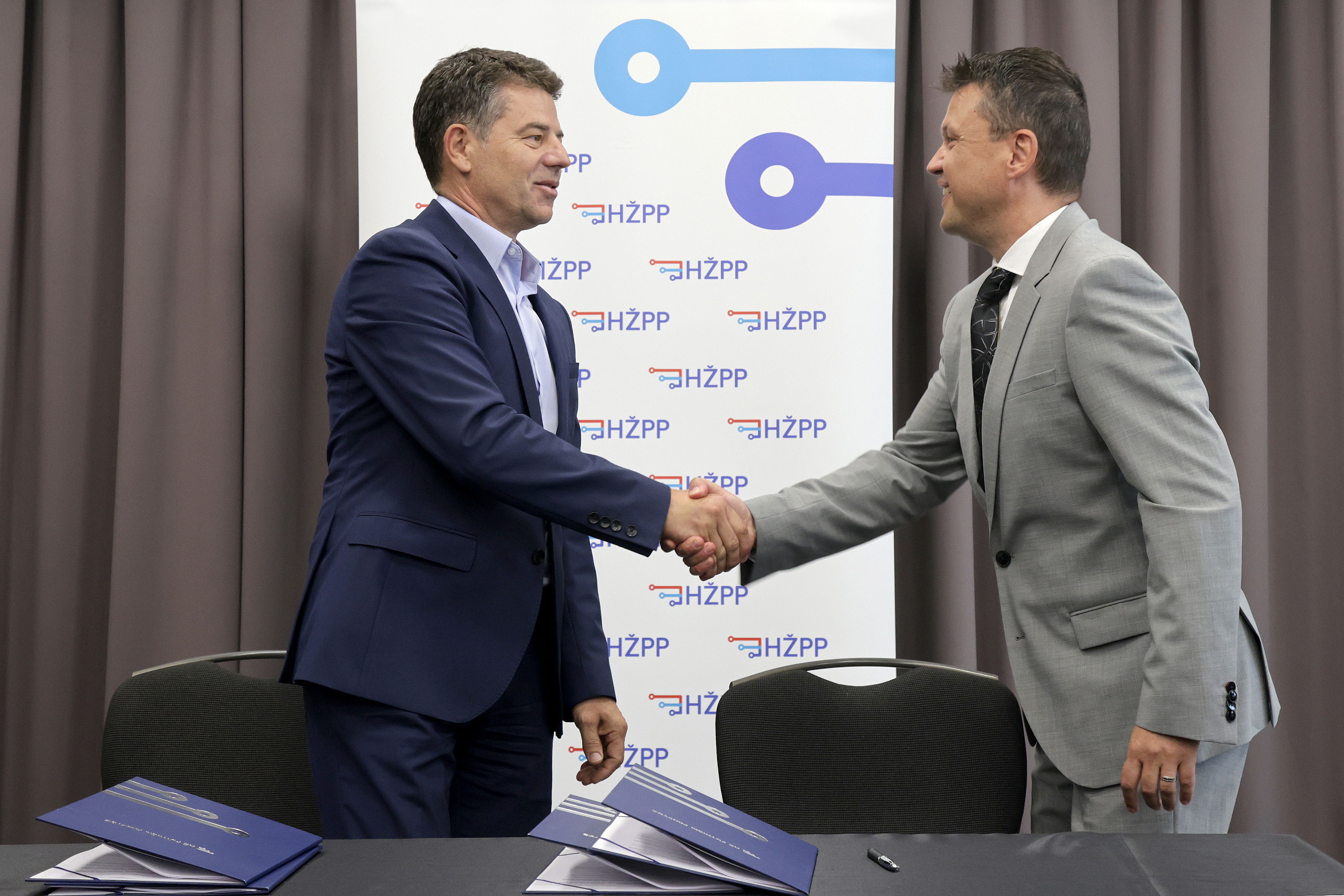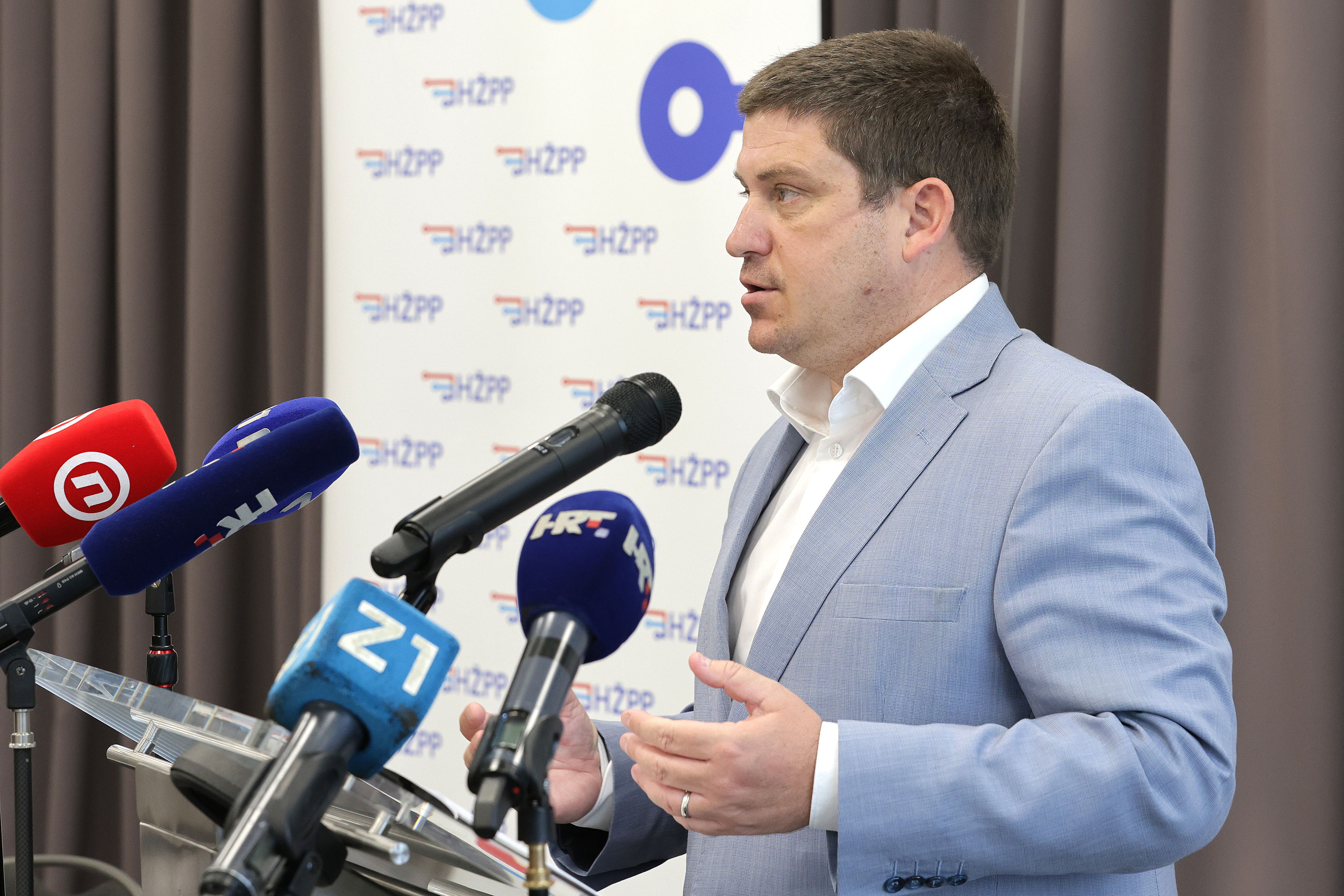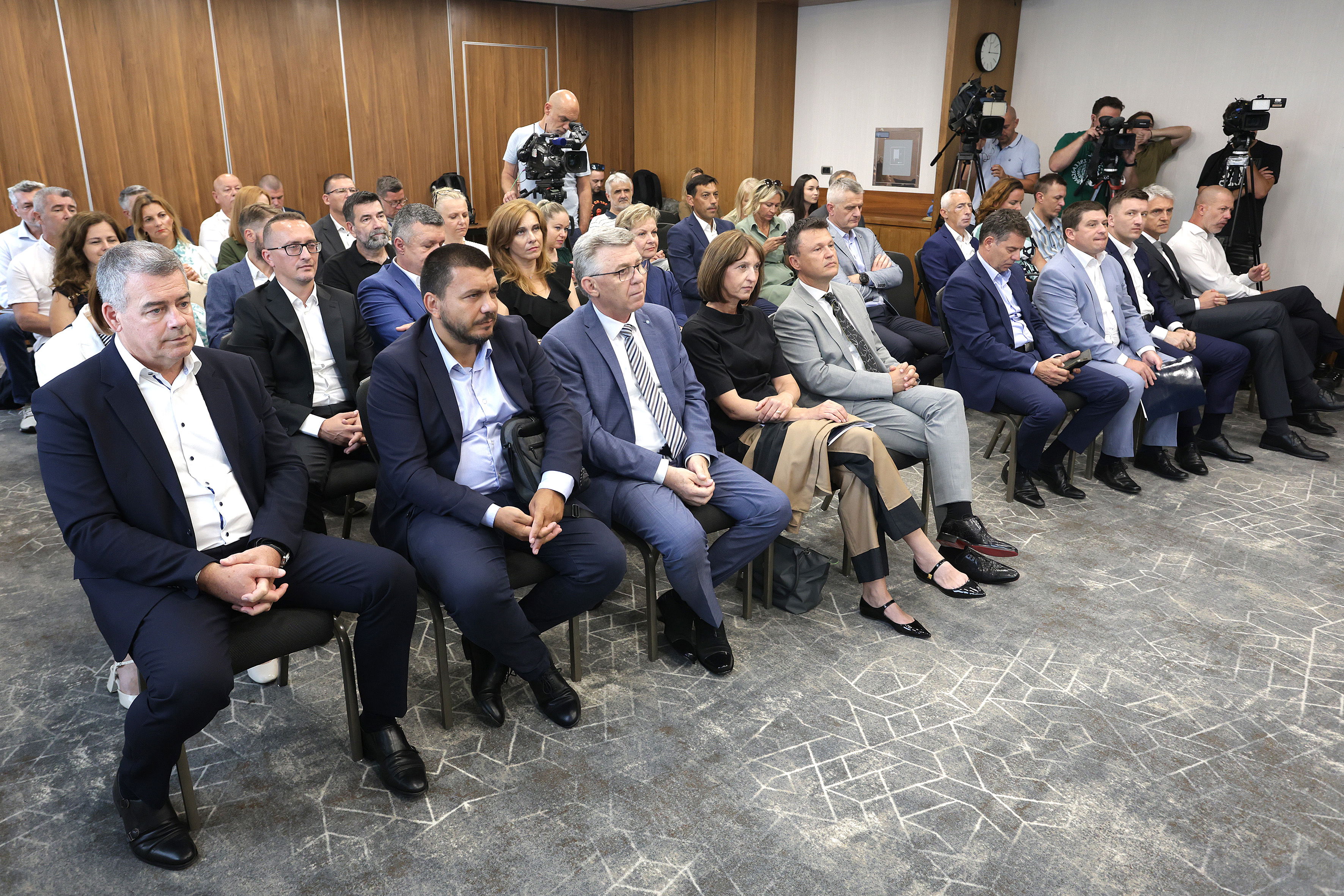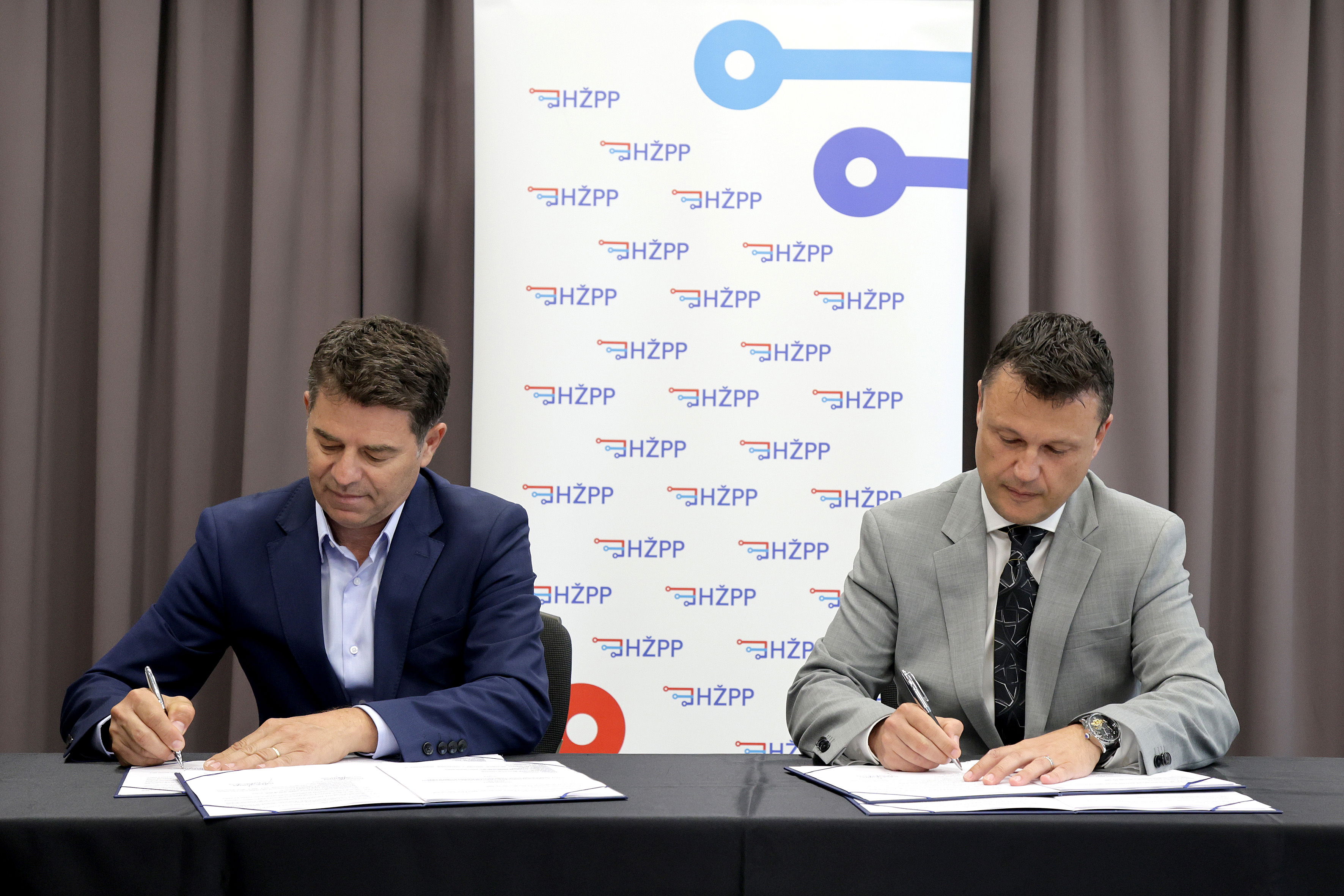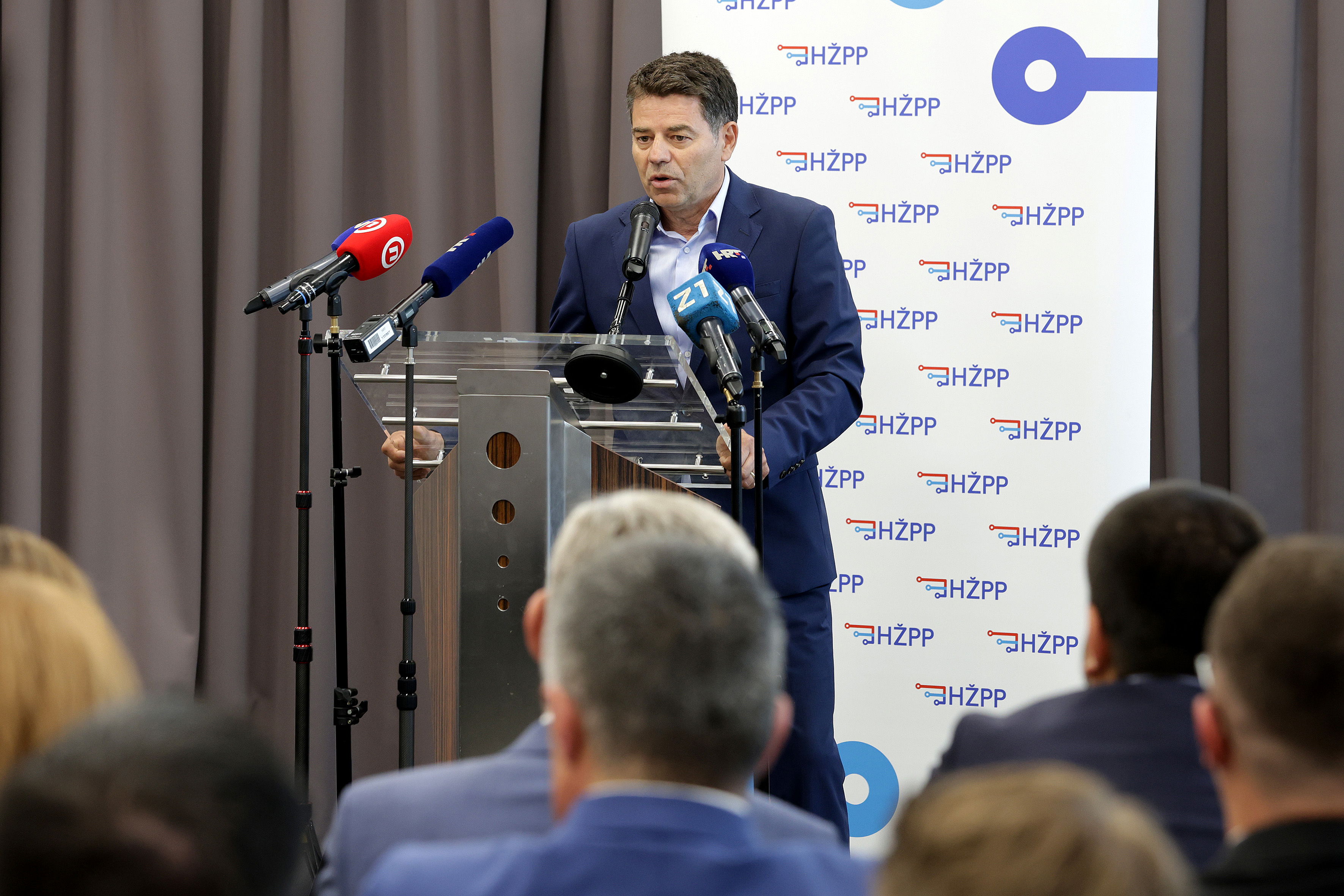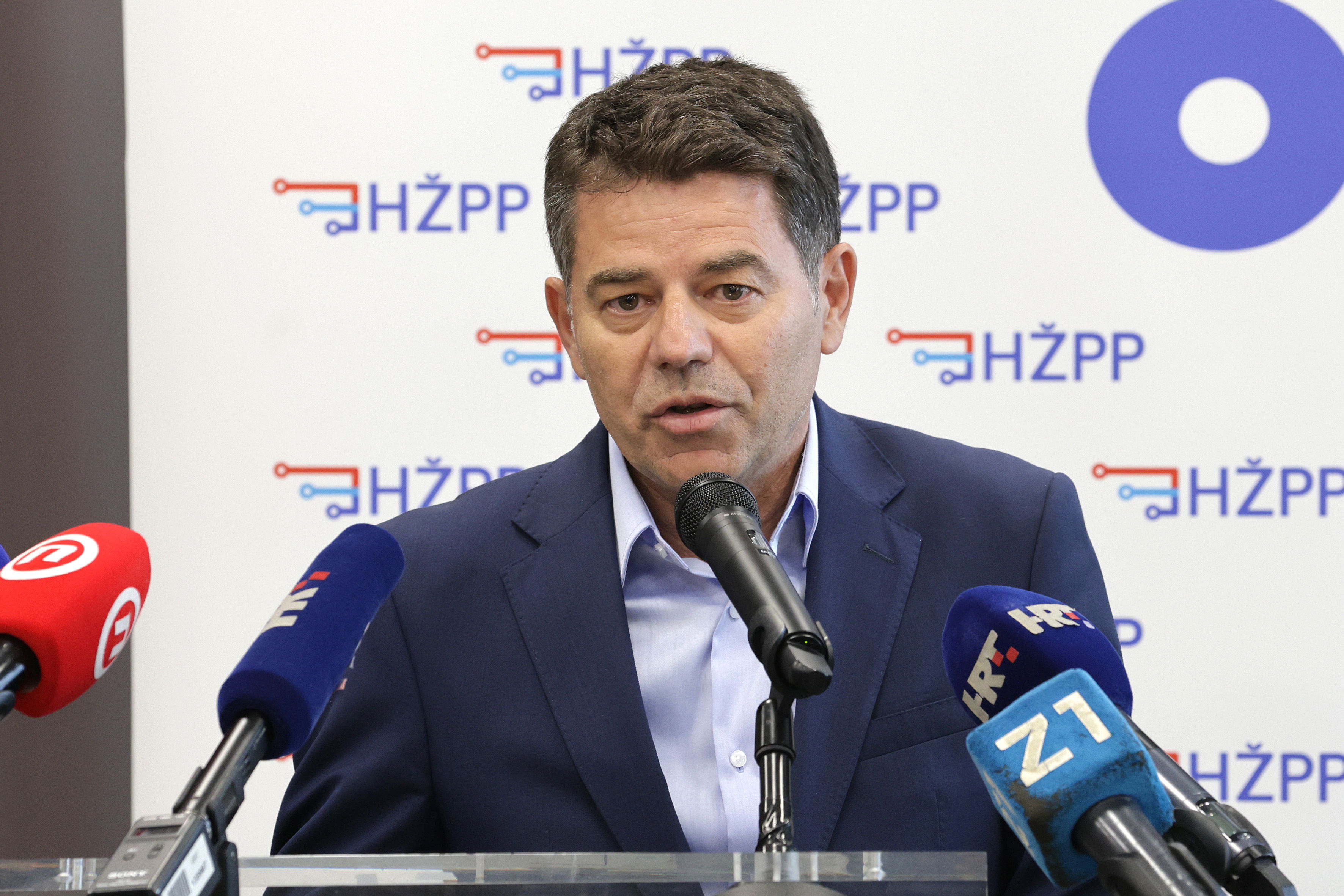Contract Signed for the Production of 13 New Trains
On 30 June 2025, contracts were signed for the purchase of 13 new trains. The contracts include the production of 5 electro-diesel trains, 4 electro-battery trains, 4 battery trains and two charging stations to be installed at Lupoglav and Velika stations. The total value of the project, financed through a European Investment Bank (EIB) loan, is €117.9 million. The trains are scheduled for delivery in 2027 and 2028.
The contracts were signed by the President of the Management Board of HŽ Putnički prijevoz, Željko Ukić, and the President of the Management Board of KONČAR – Električna vozila, Josip Ninić. Present at the signing were Deputy Prime Minister and Minister of the Sea, Transport and Infrastructure Oleg Butković and President of the Management Board of KONČAR Gordan Kolak.
On this occasion, Deputy Prime Minister and Minister of Transport, Oleg Butković, stated that Croatia is currently undergoing the largest investment cycle in its railway sector in recent history, which is accelerating system modernization. Investments by 2035 are expected to exceed €6 billion, distributed evenly across major European corridors and regional lines, ensuring balanced development and wider access to public transport for all citizens.
- In the past four years, we have invested €194 million in new trains. In the next three and a half years, the fleet will be expanded by another 24 new trains, with nearly €200 million invested, including the trains covered by today’s contracts. Despite the challenges typical of large infrastructure projects, public perception of railways is improving. Until recently, there were skeptics who did not believe that Croatia would have battery trains, and today they operate on our railways. - said Minister Butkovic.
The new trains will provide higher-quality service and improve local and regional connectivity, especially on non-electrified lines.
- Today we have new electric trains transporting passengers on electrified lines across the country. In Croatia, more than 60% of railways are non-electrified, which is why these contracts are important. Electro-diesel trains are hybrid trains for use on both electrified and non-electrified lines, as are electro-battery trains, while battery trains are designed for lines without electrical infrastructure. By introducing these trains, we will improve service in parts of Croatia where the existing trains are nearly 45 years old. - said Željko Ukić, President of the Management Board of HŽ Putnički prijevoz.
President of the Management Board of KONČAR pointed out that the contracts for the production of 13 new trains are a continuation of long-term cooperation with HŽ Putnički prijevoz to create a modern, efficient, and sustainable public transport system in Croatia.
- KONČAR continuously invests in the development of new technologies and production capacities in the railway sector to strengthen domestic industry and create competitive products for European and global markets. This project is part of a broader wave of investments in modernizing railway vehicles and infrastructure in Croatia, which in the coming years will significantly improve public transport, making it faster, quieter, greener, and more accessible. I would like to thank HŽ Putnički prijevoz for their trust, as well as all our employees - especially those whose dedicated work directly contributes to the successful implementation of such projects, and our partners who contribute to their realization. - said Gordan Kolak.
Electro-diesel trains will operate on routes from Zagreb to Koprivnica, Osijek, Čakovec, Kotoriba, Zadar, Rijeka, and Pula (via Slovenia). They will have two propulsion systems: electric for electrified lines and diesel for non-electrified lines. The trains will have a maximum speed of 160 km/h. Onboard services will include catering, and trains will have 150 seats.
Electro-battery trains will operate on both electrified and non-electrified lines in Croatia. On non-electrified lines, it will operate on battery power (maximum speed: 120 km/h), and on electrified lines it will use electricity from the overhead catenary (maximum speed: 160 km/h). Batteries will be charged either from the overhead catenary or at charging stations. The capacity will be 150 seats.
Battery trains will be used to transport passengers on non-electrified lines in Croatia. They will be powered by batteries that are charged exclusively at charging stations. They will reach a maximum speed of 120 km/h and have a capacity of 100 seats.
All 13 trains will be low-floor, allowing easy boarding and disembarking, and equipped with ramps for wheelchair access, bicycle storage, and power outlets. They will be equipped with a modern information system and video display monitors. Passengers will have access to free Wi-Fi. The trains will feature video surveillance, and multiple units can be coupled to provide increased capacity.
This project continues the modernization of the HŽ Putnički prijevoz fleet, ensuring more efficient, competitive, and sustainable railway passenger transport in Croatia.
